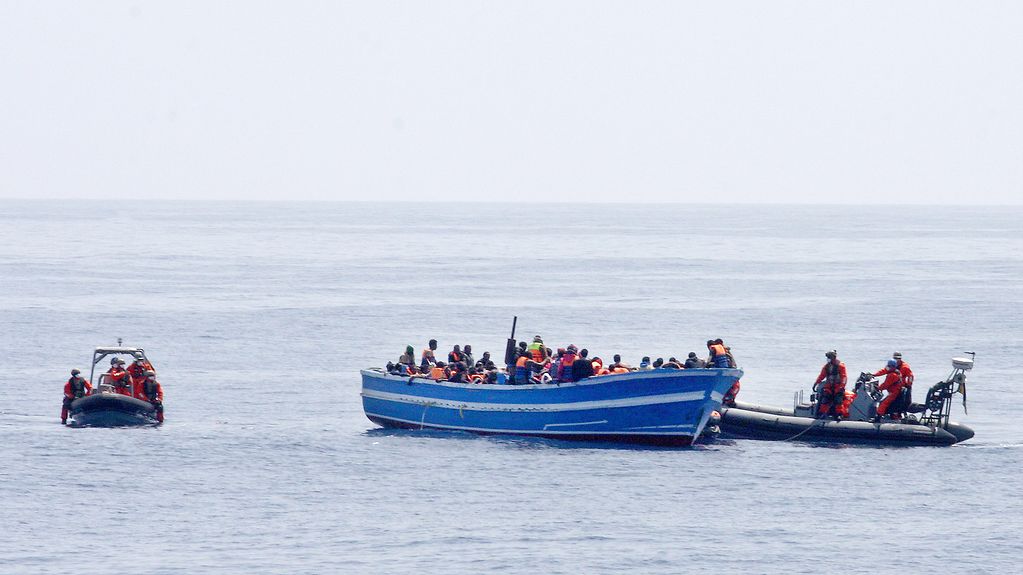Solidarity with Italy
In a telephone conversation Chancellor Angela Merkel has once again assured Italy’s Prime Minister Paolo Gentiloni of her solidarity in the field of refugee policy. They also discussed political developments in Libya, reported deputy government spokesperson Ulrike Demmer.
2 min reading time

A huge number of refugees are attempting to cross the Mediterranean to Europe, many of them in boats that are not sea-worthy
Photo: Bundeswehr/PAO/Mittelmeer
The refugee flows across the Mediterranean and the political situation in Libya were the focus of a telephone conversation on Wednesday morning between Chancellor Angela Merkel and Italian Prime Minister Paolo Gentiloni. As the deputy government spokesperson Ulrike Demmer reported, Angela Merkel thanked her Italian counterpart for approving the extension of the EU’s Operation SOPHIA off the Libyan coast.
The two heads of government agreed that the aim must be to work with UNHCR (United Nations High Commissioner for Refugees) to improve the conditions such that the flows of migrants from Libya can be more effectively managed and ordered.
Criminal human trafficking has become a profitable businesses, especially in the towns and cities along Libya’s coast. On 22 June 2015, the EU’s Foreign Affairs Council launched the European Union Naval Force – Mediterranean Operation SOPHIA (EUNAVFOR MED) to fight human trafficking and save refugees.
Migration across the Mediterranean
The Chancellor, reported Ulrike Demmer, once again assured Paolo Gentiloni of Germany’s support in tackling the flows of migrants. Angela Merkel included in this the current project, which is also supported by France. It aims to strengthen Libyan municipalities along the migration routes inside Libya, in order to make illegal human trafficking inside the country more difficult.
Compared to last year, some 7 per cent more refugees have crossed the Mediterranean to Italy this year. It is estimated that up to 1.2 million (labour) migrants are currently in Libya. Most of them come originally from Egypt or sub-Saharan Africa. Libya is the main transit country on the route across the Central Mediterranean to Italy.
Libya needs stable government structures
Angela Merkel and Paolo Gentiloni agreed that the meeting between the Chairman of the Presidential Council of the Government of National Accord, Fayez Al Serraj, General Haftar and the Special Representative of the United Nations Secretary-General, Ghassan Salamé was a positive step, in efforts to improve the situation in Libya, reported the deputy government spokesperson. The meeting took place on Tuesday (25 July) in Paris, with French President Emmanuel Macron mediating.
The efforts of the Government of National Accord and Chairman Fayez Al Sarraj and the United Nations to realise the Libyan political agreement deserve our full support, continued Ulrike Demmer. It must be clear that Fayez Al Sarraj represents the UN-legitimated Libyan government.
In spite of the formation of a Government of National Accord, parts of Libya are still controlled by armed militia. The lack of state structures benefit the gangs of traffickers, who send boatloads of refugees from the Libyan coast on the dangerous trip to Europe, in craft that are mostly not sea-worthy.